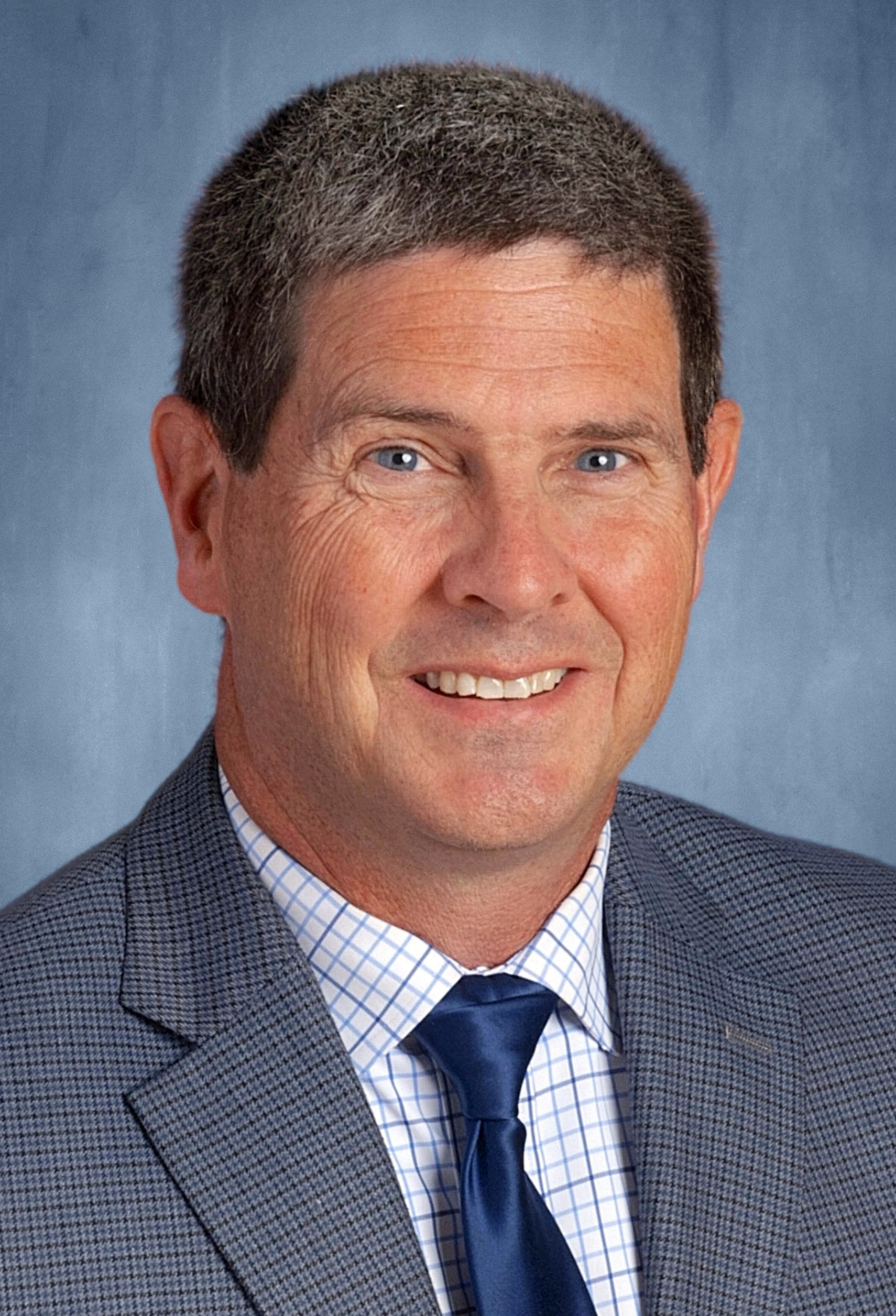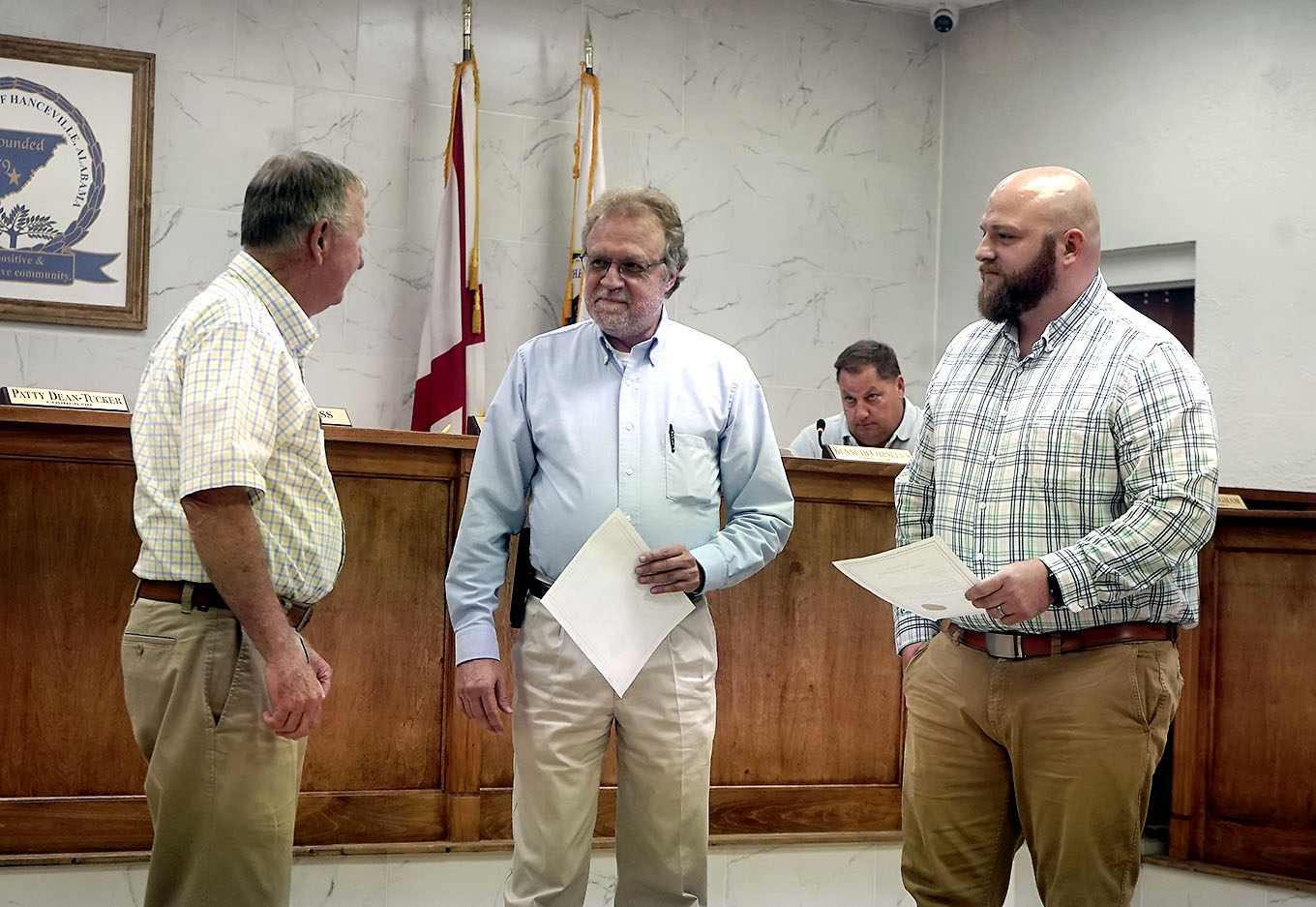Circuit judge candidates talk courts at GOP forum
Published 12:00 am Thursday, February 15, 2024

- Emily Niezer Johnston, left, and Melvin Hasting, right, field questions during a GOP forum for circuit judge Tuesday, Feb. 13, at the VFW in Cullman.
Voters turned out on Tuesday to hear firsthand from the the two candidates in this year’s race to succeed Martha Williams as one of Cullman County’s two circuit judges.
At a question-and-answer forum hosted by the local GOP, Republican candidates Emily Niezer Johnston and Melvin Hasting shared their thoughts on issues ranging from averting violent crime to dispensing with local courts’ heavy case backlog, while making their case to join presiding Judge Greg Nicholas in serving the Cullman County residents within Alabama’s 32nd Judicial Circuit.
Trending
Each a veteran attorney who was raised locally and has sought the office before, neither Hasting nor Niezer Johnson has held a judge’s position in the past. But each made their case to explain how their experience as a practicing attorney has helped prepare them for the job.
Admitting that the office would pose a “learning curve” for either candidate, Hasting, who operates his own local law firm, leaned on his diverse and extensive background as a trial attorney.
“Either one of us has got to learn to be a judge,” he said. “The difference is, I’ve been there. I’ve been in circuit courts all over this state. … I’ve done every single case that you can try. I am the only certified candidate who can handle a death penalty case. … I’ve tried custody cases, I’ve tried land line disputes, I’ve tried car wreck cases, I’ve tried medical malpractice cases” in venues including state and federal court up to and including the Supreme Court of Alabama and the U.S. Court of Appeals for the Eleventh Circuit.
Niezer Johnston, who currently serves as the county attorney for the Cullman County Commission, described the law as “a huge umbrella,” agreeing with Hasting that “there’s no way you can know it all.
“But,” she added, “a circuit judge presides [over] a court of general jurisdiction. So any controversy that’s over $20,000 — all your more serious criminal cases — they come before a circuit judge. Well the good news is, I have worked in those areas.”
Questioned on how the court can expedite a chronic case backlog, Niezer Johnston proposed giving closer scrutiny to criminal cases whose resolutions often are delayed by docket continuances.
Trending
“How many continuances can you allow?” she said. “There are lots of reasons that cases are continued. … If [a case] has been continued three times, let’s put it on the record: What is missing from this file? What is it going to take to get this case to move forward?”
Niezer Johnston also floated the possibility of tapping civil juries for crossover duty in criminal court, in instances when there is no jury trial on a given civil docket. It’s “reasonable,” she said, during civil jury weeks with no case set for trial, to “use those jurors to go ahead and move forward with criminal cases, if that’s what we need to do.”
Hasting, meanwhile, indicated his willingness to extend court after hours in order to lower its pending caseload.
“I know that Judge [Greg] Nicholas has been involved with the AOC (the Administrative Office of Courts) and the legislature about getting another judge. But now, we’re stuck with what we’ve got,” he said.
“So how do you solve that? We may not be able to go home at 4; 4:30 in the afternoon. We may have to stay until 8 or 9 o’clock at night to get these cases done. Because at the end of the day, it’s not about getting the docket numbers down and getting the cases resolved; it’s not a cattle sale to kind of run them through. Your decisions affect somebody’s life; somebody’s livelihood,” he said, adding that he would do “whatever it takes” to diminish the circuit’s stack of pending cases.
Both candidates cited residents’ growing concern about a potential uptick in violent crime as one of the topics most often raised by interested voters. Though Hasting said he’s always valued the Cullman area’s relative safety, “We are slowly becoming a violent county. [People] are worried about crime, they are worried about these continuous career criminals,” he said, noting that a circuit judge’s role extends far beyond criminal matters, while also acknowledging that both victims and the accused often grow frustrated at the length of time it takes for justice to run its course.
Niezer Johnston stressed she would treat all parties before her court with “dignity,” while noting that many voters have expressed curiosity about the temperament of their next circuit judge.
“The No. 1 thing [people] are concerned with is, ‘Well, what kind of judge are you going to be?’” she said. “‘Are you going to listen to us? Are you going to listen to the facts? Are you going to be fair? Are you going to be impartital?’ … Those are genuinely the concerns that they have. and they want to know, ‘Are you going to be tough on crime? What are you going to do about that?’
“Well let me tell you, if someone is convicted of a serious criminal offense, I will do everything under the law to protect the people of Cullman County,” she said. “A judge is the gatekeeper to the community and sets the standard to what it is that we are willing to tolerate and put up with.”
Voters will decide whether Hasting or Niezer Johnston will ascend to the circuit judge’s seat on March 5, when party primary elections will be held. Because no Democrat qualified to run for the seat, the winner of the primary will face no opposition in the General Election in November, and will become the presumptive winner of the judge’s seat.





